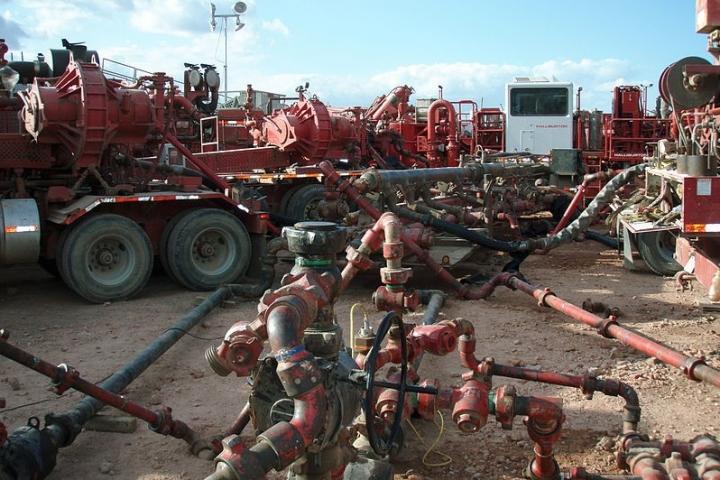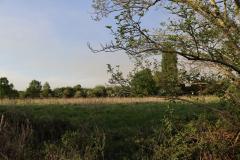
Government proposals to develop the shale gas industry will be "welcome" to some councils across the country – but Cheshire East Council says they are not right for them.
The measures, unveiled today, include allowing councils to keep 100 per cent off the business rates for shale gas projects, rather than the usual 50 per cent.
Also, the shale gas industry has promised communities £100,000 for test drilling at potential sites and a further 1% of the revenues if deposits are discovered.
Shale gas is extracted through the controversial fracking technique, which involves deep-drilling with a mixture of water, sand and chemicals in order to release hard-to-reach deposits of shale gas.
Although the British Geological Survey estimates there may be 1,300 trillion cubic feet of shale gas in the north of England, Cheshire East Council Leader Michael Jones has confirmed that there won't be any fracking projects in Cheshire East.
Cllr Jones explained: "Let me be clear, there are parts of the country where local councils will welcome ministers' offer to benefit from shale gas extraction, however our main focus as a council is on the exciting potential for geothermal technology in Crewe.
"We believe this is a 'game-changer' for the borough, providing renewable heat and energy on a significant scale and we are in talks with the government to help us develop the site."
He added: "Fracking may well be a useful technology for other areas and good luck to them if it is, however the people of Cheshire East have our assurance that there won't be any in our borough."
The Council is also investigating the use of other renewable technologies such as advanced thermal treatments, which process solid waste, to reduce carbon emissions and introduce a step change in local energy production.
Photo: Halliburton frack job in the Bakken by Joshua Doubek, licensed under the Creative Commons Attribution - Share Alike 3.0 Unported license.










Comments
Here's what readers have had to say so far. Why not add your thoughts below.
Maybe those in favour of fracking can tell us what would be the effects on the gas stored underground in disused salt mines at Byley?
http://bit.ly/1dwcIiS
Looks like Cllr Jones has actually taken some proper advise (after spouting his mouth off again). Prejudging planning is firm grounds for appeal (and would also mean that costs are awarded against the Council).
So while fracking might seem a great way to get some more energy at a time when energy reserves are falling (and it could be argued that it will have less of an impact on the environment than say importing oil from Russia or the Middle East) Rob Hopkins of the Transition movement has produced a useful list of questions to consider:
• Will it exacerbate climate change? Will it add more fossil fuels to the ‘pile’ of burnable carbon at a time when we need to urgently cutting emissions?
• Is it helping us build renewable energy infrastructure?
• Does it move us closer towards, or further away from, a global agreement on putting a cap on emissions?
• Does it involve externalities (pollution, environmental damage, unintended impacts) that someone other than the resource-extracting company will have to pay for?
• What is the impact on local resilience, both economic and ecological?
• What is the impact from a social justice perspective?
• Does the decision to use or not use any given fuel or technology include an analysis of the power relationships of those involved? (i.e. the power of large fossil fuel companies to influence government policy)
• Does it form a decisive part of the push towards the kind of more socially just, fair, resilient future we so urgently need to see?
I don't know what the answer is. Like Sarah, I worry about the effect on the environment (what will lots of drilling rigs look like? will the tankers block up our roads? what will the effect be on our water supply? does it matter that so much water is needed to frack? what about the safety of the chemicals used?). I also worry that government might be seen to be rushing into support fracking without thinking about it in terms of an overall energy strategy (why, for instance, are they supporting fracking financially while wheeling back on the plan to insulate peoples' houses? Wouldn't it be sensible to do both together?). But what really worries me is the legacy we leave for our children and grandchildren. Are we going to be the "grab it all" generation that empties the coal mines, empties North Sea oil reserves and then pulls all the gas out of the ground for good measure? What about the next generation and the ones after that? Do we really not care about what happens to them? Can't we leave something for them?
So all credit to CEC for at least considering other alternatives such as geothermal energy. There are alternatives, which may be part of an overall strategy that might also include some fracking, but if CEC can be bold and develop a strategy that includes non carbon energy sources such as geothermal, biogas (from biomass such as that being developed in Crewe) and solar, and supports energy saving measures such as insulation to reduce all our fuel bills, but particularly those of the fuel poor, then good for them. Perhaps all those new houses could be built to the highest energy spec with grass roofs to reduce flooding and solar panels....